The Portland Cement Association (PCA) announced the winners of the 2020 Energy and Environment (E&E) Awards, recognizing outstanding environmental and community relations efforts that go above and beyond what is required. Submissions from plants across the U.S. were evaluated and recognized for environmental efforts completed in 2019.
“America’s cement manufacturers continue to focus on researching and developing new and innovative ways to reduce environmental footprint,” said PCA President and CEO Michael Ireland. “The companies receiving these awards are great examples of our industry’s commitment to sustainability and energy efficiency.
”Presented during the PCA Fall Virtual Committee meetings, the following cement plants were named 2020 E&E Award winners:
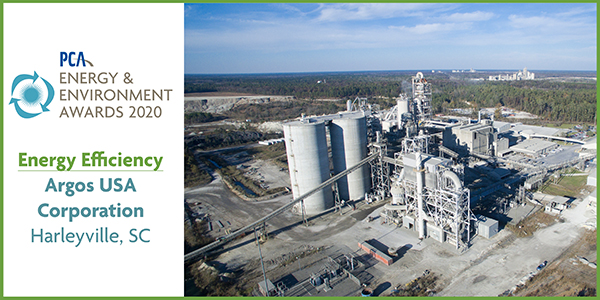
The Argos Harleyville plant improved overall energy management by reducing kiln specific heat consumption by 7.5%, and increasing the utilization of a new vertical cement mill (VCM) by producing all Type I cement in it, which in turn lowered overall power consumption by 13%. In 2019, the plant also achieved one of its highest alternative fuel substitution rates at 27%.
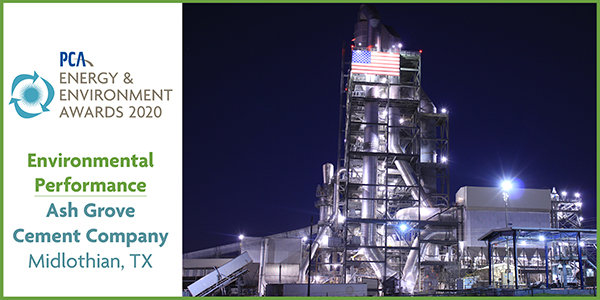
The use of a unique high-angle sandwich belt conveyor system enabled the Ash Grove Midlothian plant to convert from inefficient whole tire burning as a fuel source to highly efficient and cost-effective chipped tires. The new system has increased tire burn consumption by 500-600%, helping reduce tire disposal to landfills while also displacing fossil fuel consumption at the cement plant.
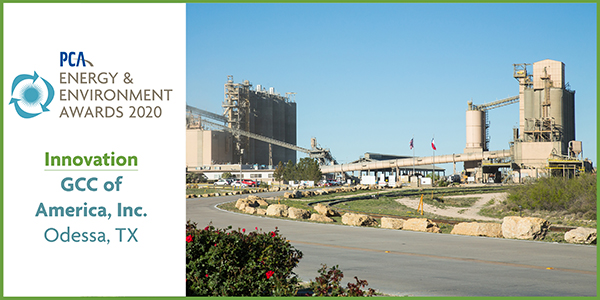
The GCC Odessa plant completed installation of a Selective Non-Catalytic Reduction (SNCR) system for nitrogen oxide (NOx) emission reduction. An optimization protocol was executed to define the most efficient operational conditions. To make this determination, GCC developed a unique approach to the SNCR system’s control loop programming, which resulted in a more stable emission control and lower ammonia emissions while maintaining the required NOx emission limit.
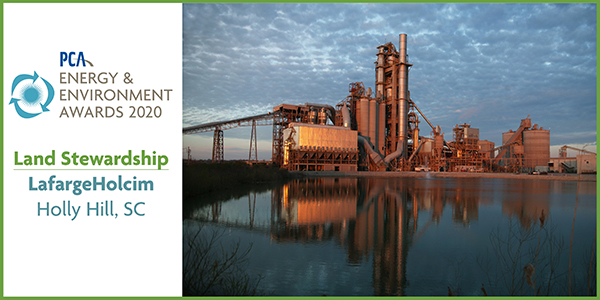
In order to address safety, economic and environmental concerns, LafargeHolcim’s Holly Hill plant re-diverted a local stream, Home Branch creek, back to its original path. The multi-year, multi-million-dollar project played a critical role in reducing groundwater infiltration into its quarry, improving environmental performance at the site. The effort will also protect the future of nearby wetlands and ensure that natural floodplains are maintained.
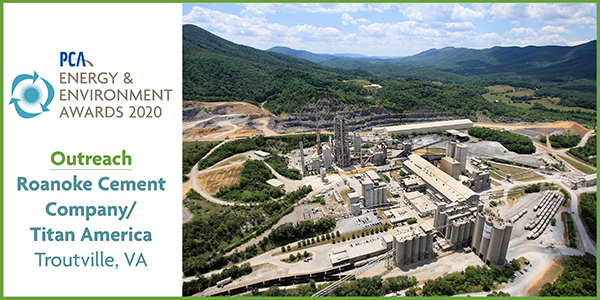
Roanoke Cement Co. was recognized for its broad and varied outreach initiatives including plant tours, campus events and off-site presentations, as well as the communication of major plant developments like its Zero Waste initiatives to customers and the community through articles and newsletters. Educational experiences on campus served to make both students and environmental professionals familiar with RCC’s work.
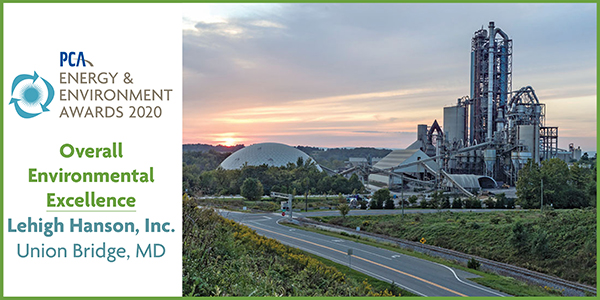
Three years ago, Lehigh Cement undertook a Haines Branch Stream mitigation project, which spanned 2.2 miles, and the company has been monitoring the area since project completion. In 2019, the results and benefits became highly visible. As a result of the improved water quality, benthic macroinvertebrates and fish populations in the restored section have increased in quantity and diversity. Improvements have also attracted numerous wildlife to the region.



